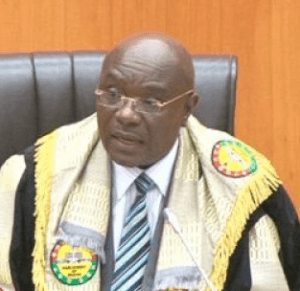Government withdraws Spy Bill from parliament, makes replacement

The Government has withdrawn from Parliament the Interception of Postal Packets and Telecommunications Messages Bill, 2016, citing “certain critical issues” as the reason for the move.
The Bill has, however, been replaced with a revised version.
Mr James Agalga, the Deputy Minister of the Interior, who withdrew the Bill, which received critical scrutiny from stakeholders, said certain critical issues that came up during the consideration of that piece of proposed legislation and the misgivings expressed by interest groups made it imperative to extract the Bill from the House.
“The withdrawal has been necessitated by certain critical issues that came up during the consideration of the bill by the Parliamentary Select Committee on Defence and the Interior, as well as the various memoranda submitted by interest groups,” he stated.
Thus, the Speaker, Edward Doe Adjaho, announced the withdrawal of the Bill and referred the new version to the Defence and Interior Committee for consideration.
The Bill, widely referred to as the “Spy Bill”, seeks to enact a legislation for the lawful interception of postal packets and telecommunication messages to help fight crime and suppress organised crime.
The proposed law would permit security agencies intercept postal or telecommunications messages that would be deemed as threat to national security and operations.
It seeks to stop money laundering, terrorism, narcotic trafficking and identity theft.
When the Bill was initially laid in Parliament last February, several interest groups, as well as left wing legislators, expressed reservations on the grounds that there were several existing laws that served the same objective and that it would amount to duplication of legislation.
Some cited laws like the Anti-Money Laundering, Anti-Terrorism, Narcotic Drugs, Electronic Communications, Data Protection, Economic and Organised Crime Office, and Security and Intelligence Agencies Acts, that they said could act as checks on the issues the Bill was seeking to address.
Source: GNA
